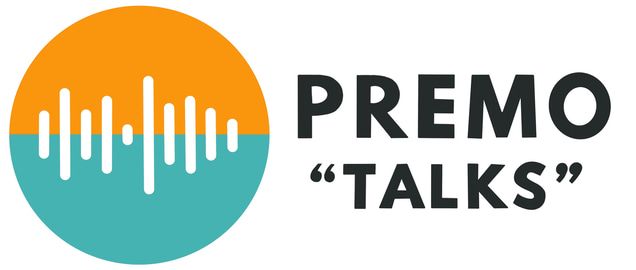Lessons from a Lifetime in Trade: A Conversation with Nigel Comley
With over 40 years in international trade, Nigel Comley shares his journey from early countertrade deals to multimillion-dollar projects across Africa — offering invaluable insights into building trust, navigating complexity, and doing business with integrity.
THE TEAM
Harriet Comley & Nigel Comley
5/11/20258 min read
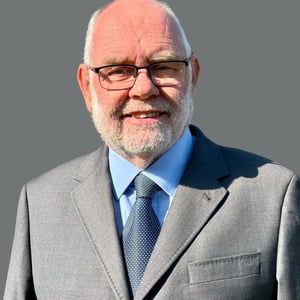
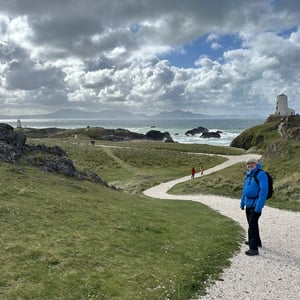
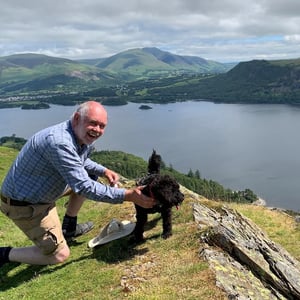
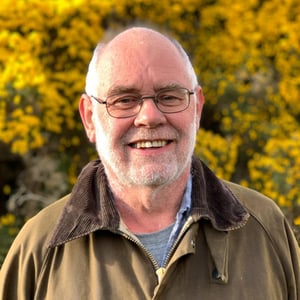
At Hunan Premo Trading Co., Ltd., we believe that wisdom drawn from experience is one of the most valuable assets a team can possess. That’s why we are especially proud to count Nigel Comley as a senior consultant and advisor. With over four decades of experience in international trade, Nigel has worked across continents—particularly in Africa—building partnerships, delivering multimillion-dollar education and equipment projects, and pioneering some of the earliest international contracts with now-emerging economies. His story is not only rich in professional achievement, but also rooted in a deep understanding of integrity, trust, and long-term impact. In this special feature, we sit down with Nigel to reflect on his journey, lessons learned, and timeless advice for doing business in Africa and beyond.
How did you first get into international trade?
My first job following graduation was with Massey Ferguson, the tractor manufacturer. I worked in a commercial role in the "Countertrade Department," where countries like Brazil, Poland, and Libya bought tractors in complete knock down (CKD) or part knock down (PKD) form. In return, those countries would provide products or commodities rather than using hard currency to pay for the equipment. This included a very diverse range of products such as coffee, skis, and oil. We had to match the sellers’ products with prospective buyers to achieve sales of tractors. I got to travel to Poland and Libya, see the facilities where the tractors would be assembled, and meet foreign dignitaries — including Lech Walesa, the leader of Solidarnosc, who later became the president of Poland.
What was your first job related to Africa?
My first real success in international trade started by chance during a conversation whilst in Tripoli, Libya, helping to unpack, inspect, commission, and install workshop equipment to assemble the CKD and PKD tractors. I was introduced to a farmer and entrepreneur from Benghazi who wanted to open a tractor maintenance workshop in the Green Mountain area of Libya in order to maintain the tractors purchased from the Tripoli factory. I was asked if I could provide all the equipment necessary to maintain tractors! Starting from scratch, I put together a comprehensive list of equipment from multiple suppliers and countries, providing the client with literature, specifications, and a funding package. A few months later, we supplied two forty-foot containers full of equipment to the value of £500,000 — and this, in circa 1981, was a significant contract and, most importantly, highlighted the potential of a career in international trade.
You’ve been based in the UK but worked with many countries around the world — especially in Africa. Which countries have you worked with, and what kind of projects?
Due to my success with the aforementioned contract, I was headhunted by one of my suppliers to work in the export department of the largest independent UK engineering tool supplier – Cromwell Tools. This gave me the opportunity to find internationally funded overseas projects in markets such as Ethiopia, Ghana, Tanzania, Uganda, and Rwanda. These multi-million-dollar projects were funded by organisations such as the World Bank, European Community, International Bank for Reconstruction and Development, and Food and Agriculture Organisation. We had to provide bids based on the funding agencies’ strict open tender conditions, in a format known as “International Competitive Bidding,” which had detailed terms and conditions relating to country of origin, specifications, delivery times, quality procedures, etc. Basically, you had to source equipment that was both competitive in price and fully met the client’s and funding agencies’ specifications and terms.
My focus initially was on workshop equipment, as that was what I felt comfortable sourcing. But eventually, the product portfolio became wider and more diverse. You could perhaps summarise the clients primarily as educational establishments, particularly vocational training institutions. The variety of faculties and disciplines meant that I was involved in buying and selling agricultural equipment, woodworking machinery, steel fabrication and welding equipment, medical and laboratory equipment — the list goes on. My two biggest contract awards were both in excess of $15,000,000 and involved multi-destination deliveries: one in Romania (180 schools with woodworking and automotive equipment) and one in Ethiopia (supplying lapidary equipment to 10 technical colleges throughout the country), as well as arranging installation, commissioning, and training for all equipment supplied. This involved working and travelling throughout Europe, the USA, and Asia — meeting suppliers, negotiating terms, coordinating shipments and inspections, etc. Frequently, I would travel to the final destination for the tender opening, taking caseloads of documents, liaising with agents and clients, and visiting recipient schools. I got to see some amazing places that the usual tourist or business traveller would never get to visit — albeit it did involve a few civil war zones.
What kind of work did your company, ICB Consultants, do?
After working successfully within other companies as a project director, I decided that I would like to run my own consultancy firm for a few years and impart my knowledge and experience on a fee basis to clients throughout Europe. I actually worked closely with companies I had previously competed against, as well as with some of my former employers. The difference this time was that I had full control over what projects I wanted to work on and with whom I wished to collaborate — all with the advantage of being able to work from home! The focus of my work was still international competitive bidding (abbreviated in tender documents as ICB — hence the choice of my company name). I would choose the projects, select the suppliers, negotiate terms, liaise with suppliers, clients, end users, banks, agents, competitors, purchase goods, arrange shipments, training, and installation — the whole remit. The one exception was the funds to pay for the goods, as that was provided by my principal on each project.
What’s one project you’re most proud of?
It has to be my first project in Libya. I was just 22 at the time, and I had a great boss — Mike Pink — who let me do everything. He just oversaw my calculations and proposals without interference. I gained a huge amount of confidence from that experience and will never forget the trust that Mike instilled in me.
What’s changed in African trade since you started?
The internet! Yes, I am of an age that conducted business pre-email and pre-internet. We had old-fashioned letters (snail mail), telexes, and facsimiles — and not all clients had all three of those forms of communication! In all seriousness, the introduction of the internet and mobile phones was a huge step forward for international trade with Africa, and in many ways, Africa was ahead of Europe in mobile phone coverage. It meant even the most remote African villages had access to the world — this changed their perspective and showed them what was available globally. Equally, it made trading with Africa easier, as not everything had to be done through flying to the country.
I think the aspirations of African nations have also changed. They know now that much more can be achieved. African markets are far more developed and have higher expectations. They do not want to be “ripped off” by the rest of the world. True trading relationships are what are required — where two companies or countries both benefit from a contract. Trade has to be beneficial to both parties.
What mistakes do new investors often make in Africa?
They expect everything to happen quickly — it doesn’t. There is still a huge amount of bureaucracy to get through. The availability of ‘hard currencies’ such as the dollar can be difficult at times. Fluctuating exchange rates cause issues for African banks, so payment instruments such as letters of credit can take a long time to be realised. For instance, in Ethiopia, where limited foreign currency is available, many public companies have to bid for foreign currency on a monthly auction basis. Funds are awarded to those bidding the highest amount in local Ethiopian Birr for the available currency.
Once upon a time, Africa was perceived as a dumping ground for inferior quality goods that were not suitable for the traditional markets of the West. This is no longer a strategy that any company should adopt if they want a lasting relationship. Africa has learnt quickly not to buy purely on price but to insist on quality that lasts. Any investor should not underestimate these issues. Africa is a huge and growing market — and with tariff wars being instigated by the USA affecting many global markets, investors will increasingly be looking towards Africa as a replacement market for trade lost to the USA. Treat Africa with respect.
What’s the most important thing in building trust in business?
In business, there is no substitute for face-to-face meetings to build trust. The trading parties need to visit each other, understand each other’s objectives and problems, and discuss barriers and issues with trading. The relationship ideally should start with small trades, where confidence can be built. In my experience, if a supplier or client has a problem, it should be aired openly and honestly. I would always prefer to know that the delivery is going to be late or the payment is delayed well in advance, so plans can be made to mitigate the effect of the delay. That’s not to say that I want a delay — I don’t — but if it’s going to happen, tell the other party as soon as possible. That way, a solution may be found and trust will be maintained.
What’s your advice to young people who want to work in Africa?
Africa is a huge emerging market and is a lot more advanced than many people believe. Get out there, explore, see what opportunities exist, and be honest. Remember, you are only a mobile call away from home — mobile coverage is excellent in Africa. Embrace the country and people you are visiting. Be aware of their customs and ways. Remember, we are all different and unique — but fundamentally, we all have feelings. Don’t do anything to others that you would find unacceptable in business if it happened to you.
You visited China—where did you go, and what did you like or find most interesting about the experience?
I first visited China as part of a Chamber of Commerce visit arranged by the Leicester Chamber of Commerce in the UK and the UK Embassy in China. We had the opportunity to meet businesses in Shanghai and surrounding areas, as well as taking a trip to Ningbo to meet suppliers. I also tagged on an extra trip to a supplier I had been purchasing goods from in Xiamen. The most bizarre part of the trip was visiting Ningbo University grounds, which were based on the exact layout of Nottingham University in the UK — even down to the boating lake. The one major overriding memory was the sheer scale of China and its cities. Looking out from the Shanghai Tower, we could see so many towns with huge populations. Along the river, I recall being told that at the time of my visit, there were fifteen cities with a population greater than London — and that was just in one province. The scope for trading was immense!
What do you enjoy doing outside of work?
I have always found the line of business I have been in to be competitive — and I enjoy that aspect of work. I like to be competitive outside of work too, with sport being something I have always enjoyed (though very little participation these days due to age — more of a watching brief now!). I still do some match fishing, which I find relaxing, and it takes me to some tranquil, scenic places. Every day, my wife and dog enjoy walking around our countryside and coastal paths, as well as visiting interesting places around the UK on a near-monthly basis. After all the years of travelling abroad, it is nice seeing and appreciating places in the United Kingdom.
Nigel’s insights serve as both a roadmap and a reminder: sustainable business is built on respect, relationships, and readiness to truly listen. His decades of experience—navigating tender processes, building trust across borders, and adapting through political and technological change—are an inspiration for our team and our clients alike. We are grateful to have him on our team and value the steady guidance he brings to our work.
